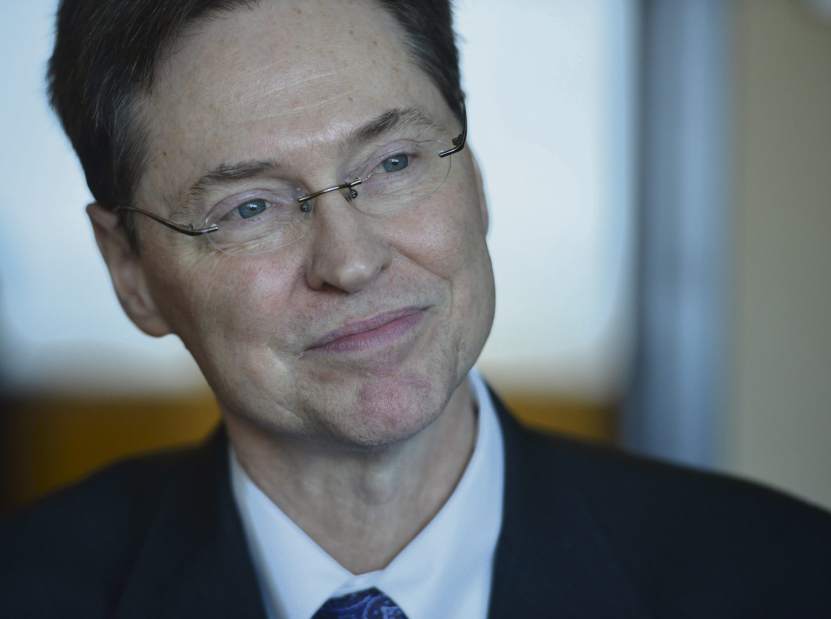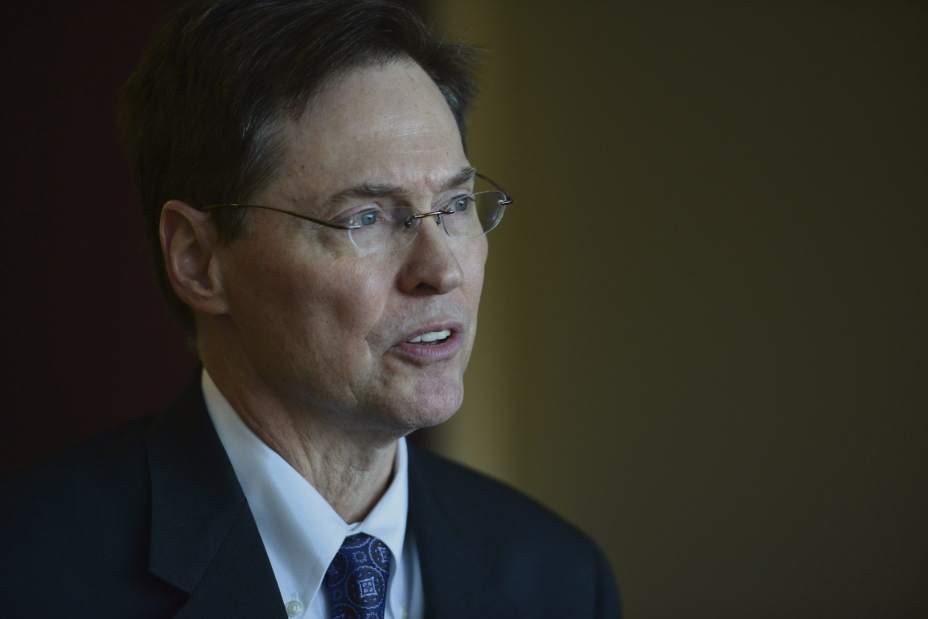Incoming Children's physician-in-chief driven by research on viruses
Even as he starts managing nearly 300 faculty members and 20 department divisions in June, Dr. Terence Dermody, incoming physician-in-chief at Children's Hospital of Pittsburgh of UPMC, plans to continue the basic cellular research that has propelled his career.
Dermody, an infectious disease specialist, said he will lead a team of about 10 researchers, including eight he is bringing from Vanderbilt University in Tennessee, where he heads the Division of Pediatric Infectious Diseases.
“I'm a physician scientist, and what fulfills me most is working with my research teams and trying to make discoveries to provide hope for kids that don't have it now,” Dermody said. “Because what we have for kids is simply not good enough.”
Dermody starts June 1 as physician-in-chief and scientific director at Children's, and has been named chairman of the Department of Pediatrics at the University of Pittsburgh School of Medicine.
His reputation as a researcher, in addition to his leadership abilities, attracted Children's officials to hire him, hospital President Chris Gessner said. Dermody will replace Dr. David Perlmutter, who left last year for Washington University in St. Louis.
“Terry is a compassionate physician, visionary leader and an elite researcher,” Gessner said. “So he really is the perfect person to lead our department of pediatrics and also oversee our scientific programs at Children's.”
Dermody said his research addresses basic, universal questions by focusing on the mechanisms through which viruses cause and propagate disease.
To illustrate the basic cellular question, he uses the analogy of a manufacturer that makes flat screen TVs. If a blueprint were loaded into the system for making TVs and caused it to make iPhones instead, the change would reflect what happens when a virus infects a cell, he said.
“It completely rewires what the cell does. It no longer does its normal things; it builds viruses,” he said. “Figuring out how any one does it will help us figure out how everyone does it.”
Dermody's work has focused on reovirus, which he said causes encephalitis in newborn animals and sometimes in humans. The virus deftly navigates the body's “neural highways” to reach the brain, he said, and understanding why it chooses to occupy certain areas will help answer questions about how viruses behave, which will help fight them.
His team is working on Chikungunya virus, which in 2013 spread from the eastern hemisphere to islands in the Caribbean. The disease affects the joints, causing pain and in some East African carriers, severely affecting posture, he said. No vaccine exists.
Since receiving his medical degree from Columbia University in 1982, Dermody, 60, has authored or co-authored more than 200 research articles, many of which have been supported by National Institutes of Health funding. At Vanderbilt, he said he oversees 25 faculty members.
Dermody joins Children's as the hospital system seeks to become a destination for talented, young physician-scientists, Gessner said. In addition to the infectious disease program, Dermody headed Vanderbilt's MD-PhD program, which trains medical doctors to become scientists.
Dermody said the opportunity to work at Children's, which in fiscal year 2015 received $30.1 million in NIH funding, represented an opportunity to take a significant step forward — one of the last such opportunities he expects to take on at this point in his life.
“There are clocks in life and they're real, and there are alarms at various intervals in the clocks,” he said.
Among his priorities are autism, childhood cancers and what are known as the “social determinants of health,” or the range of social and economic factors that influence diet, lifestyle and other factors affecting quality of life.
Gessner said Children's Hospital aims to strengthen its presence in Western Pennsylvania's communities, to “try to make the children and teenagers and young adults of Western Pennsylvania the healthiest in the world.”
The next step in accomplishing that is to improve care for children with chronic conditions, such as asthma and diabetes, Gessner said.
As the American health care system shifts from focusing on illness to promoting and supporting health, Dermody said pediatricians have a special responsibility to study the factors that set the course of a child's life.
“If we're pediatricians, that continuum from really before birth, when we first understand a woman is pregnant, all the way until they finish high school and are ready to enter the work force or college, we should care about that,” he said. “That's our space.”
Wes Venteicher is a Tribune-Review staff writer. Reach him at 412-380-5676 or wventeicher@tribweb.com.



